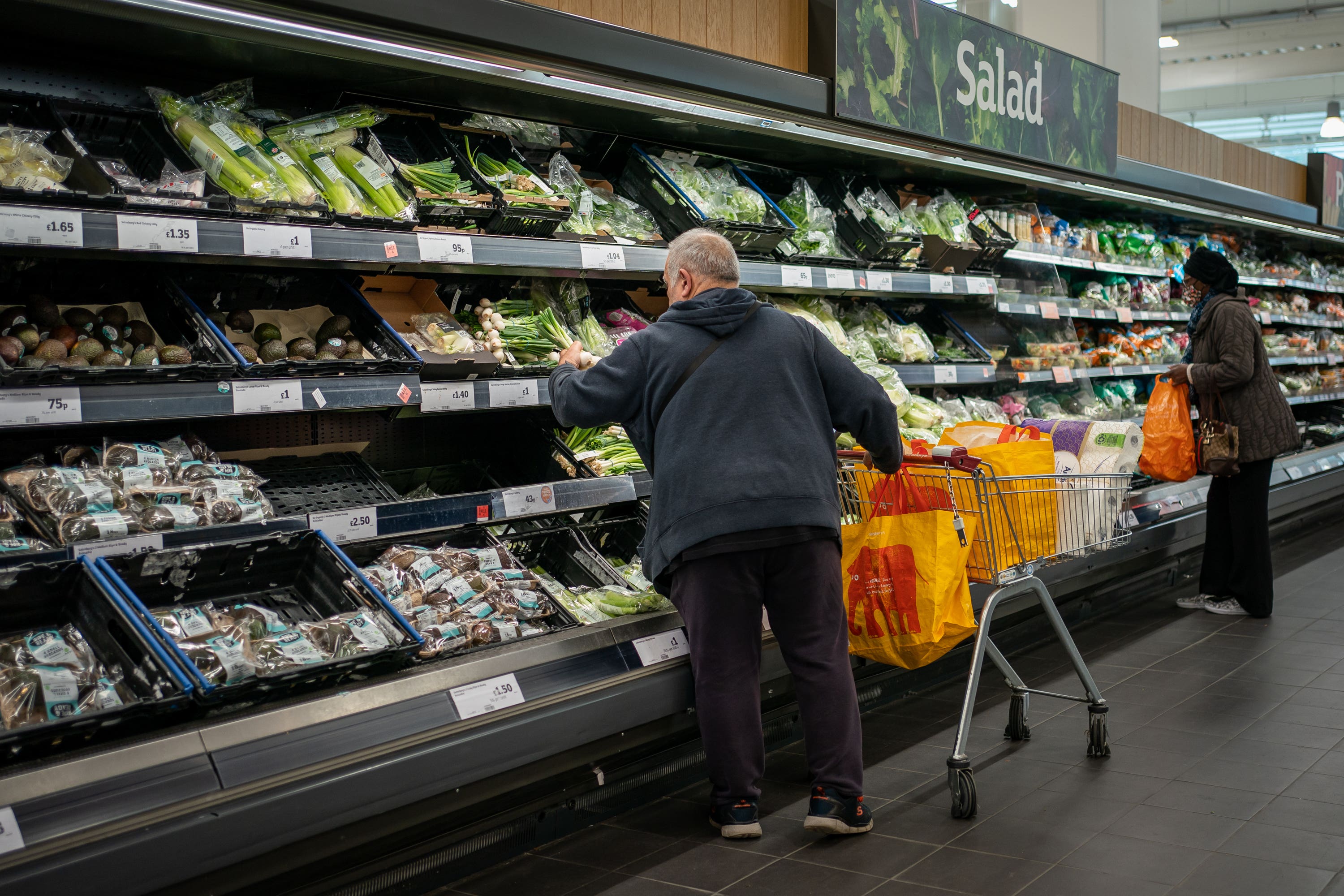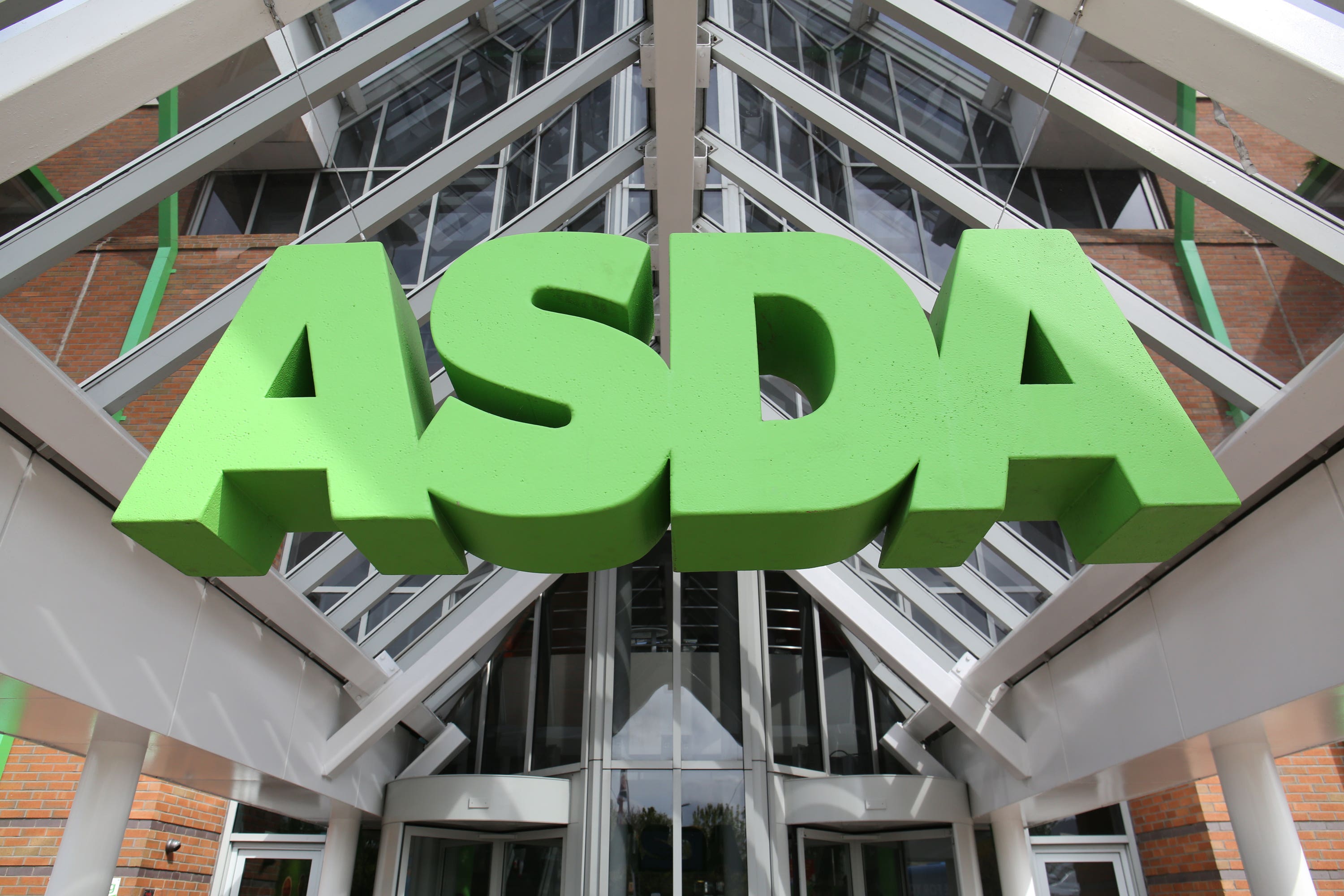Supermarkets ration fruit and vegetables with warning over panic buying
Supplies from Britain’s major winter sources have also been badly affected by weather

Supermarkets across the country have begun rationing fresh food items in a move that is expected to last “weeks”.
A poor harvest in Europe means Asda is now limiting customers to a maximum of three items such as peppers, lettuce and broccoli.
Morrisons will also start a ban of more than two items tomorrow, with limited produce including tomatoes, cucumbers, lettuce and peppers.
Shoppers across the country have been sharing their frustration on social media after being unable to find tomatoes at their local stores.
Growers and suppliers in Morocco have had to contend with cold temperatures, heavy rain, flooding and cancelled ferries over the past three to four weeks – all of which have affected the volume of fruit reaching Britain.
Supplies from Britain’s other major winter source, Spain, have also been badly affected by weather.
Production problems in Morocco began in January with unusually cold overnight temperatures that affected tomato ripening.
These were compounded by ferry cancellations due to bad weather, affecting lorry deliveries.
The shortages are understood to be resulting in industry-wide gaps on shelves in the UK, with producers further reporting needing to cut back on greenhouse numbers due to the spike in energy prices.
“Like other supermarkets, we are experiencing sourcing challenges on some products that are grown in southern Spain and north Africa,” an Asda spokesperson told PA.
“We have introduced a temporary limit of three of each product on a very small number of fruit and vegetable lines, so customers can pick up the products they are looking for.”
Minette Batters, the head of the National Farmers’ Union (NFU), told Sky News: “Everybody wants to avoid rationing, effectively, which is what we saw with eggs in December.”
“But I think there are going to be challenges on availability of some food items.” She added that the “last thing anybody wants to do is to create a level of panic buying”.
Despite these challenges hitting UK supermarkets, British producers are now starting to move into the growing season. This is expected to ease long-term pressures on retailers looking for alternatives to items produced in Spain and north Africa.

Approached by The Independent for comment, Lidl, Tesco and Sainsbury’s have confirmed that they are not rationing similar items.
The Best for Britain campaign group said Brexit had hit supply chains over the past few years, and warned of empty shelves on a regular basis without an effort to remove trade friction with the EU.
“Brexit is not responsible for the adverse conditions which have impacted crops this year, but it has made UK supply chains less resilient and increased costs for both importers and exporters,” chief executive Naomi Smith told The Independent.
The campaigner added: “Like the £200 Brexit premium on annual food bills for Brits, empty supermarket shelves will be a more common sight until the government improves their shambolic Brexit deal.”
Brexit has added an average of just over £200 a year to Britons’ food costs, according to a December study by the Centre for Economic Performance.
Join our commenting forum
Join thought-provoking conversations, follow other Independent readers and see their replies
Comments



Bookmark popover
Removed from bookmarks